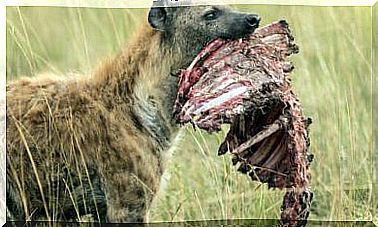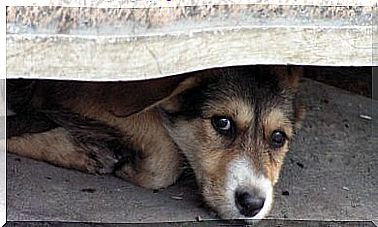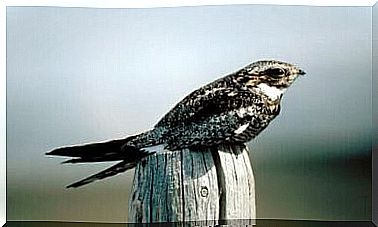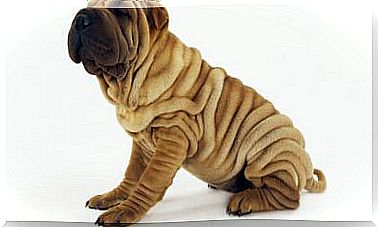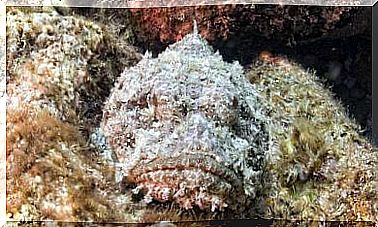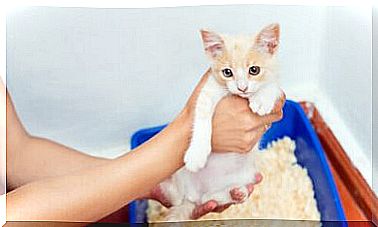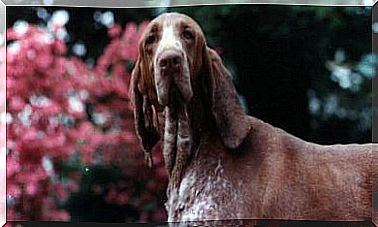How To Fight Parasites In Puppies

Parasites in dogs are very common, even in puppies. Appropriate measures must be taken immediately. It is essential to deworm puppies from the first two weeks of life. It should be borne in mind that puppies are more vulnerable and that an infection can be very dangerous for them. Also remember to avoid that the puppy comes into contact with other animals if it has not been vaccinated. It is a good rule that however does not completely avert the danger of contagion. You need to know the different types of parasites in order to take appropriate measures and to prevent your dog from getting sick. There are internal and external parasites.In this article you will find all the information you need to learn more about this topic.
Dog parasites: what are they?

Among the external parasites we must mention the arthropods, which are found in the dog’s coat and which feed on its blood. There are also insects that sting and carry infectious diseases that can endanger the health of the puppy.
Perhaps the best known parasite is the tick. The danger of infestation increases in the warmer months: you have to be very careful in spring and summer. The ticks are carriers of diseases dangerous to both humans and for animals. Your vet will be able to advise you on the best prevention. You cannot put a collar on a puppy for prevention purposes.
Fleas are also included in the list of parasites.
If the puppy shares the space of the house with you, you have to be very careful. If your dog has fleas, it is very likely that there are fleas all over the house. This happens because the adult flea gets into the dog’s hair, “sucks” the animal’s blood and then deposits its eggs in every corner of the house. The larvae will then be born, which will become adults and which in turn will return to the dog again, thus starting an infinite vicious circle.
Everyone knows about fleas and ticks. However, we must not forget the other parasites such as lice, liveries (black flies), midges, bedbugs, etc. As we said before there are also parasites that do not sting but still transmit infections such as scabies mites, torsal or cochliomyia hominivorax (killer fly) among others.
Internal parasites

Internal parasites are harder to spot. They are found in the puppy’s organs and it is possible not to notice their presence. The intestines, kidneys and muscles are very susceptible to the presence of parasites. They are particularly dangerous because they feed on the puppy’s blood and food.
The most common internal parasites are roundworms, known as roundworms. They are usually found in the intestines and cause severe gastrointestinal problems. They can also pass to the respiratory system.
The shape of the body, as the name indicates, is elongated and rounded. They are transmitted through the dog’s feces. In the case of puppies, if the mother was not already vaccinated at the time of pregnancy, the infection can occur through the mother’s milk or even during the gestation period.
Another type of internal parasites are flatworms (flat worms) are short and have a flat body. The organs in which they are hosting the bladder, the liver, the small intestine, etc. Adult worms live in the intestines of animals where they eliminate segments of their bodies full of eggs called proglottids. The proglottids come out of the rectum with autonomous movements or with the feces. In the soil, the proglottids let out the eggs that can be ingested by the flea. The infection occurs precisely through the ingestion of the sick flea by the dog.
In the case of external parasites, it is much easier to recognize and eliminate them, for example by using anti-parasite pipettes. Remember that internal parasites are not that easy to spot. An inflamed belly, diarrhea, vomiting, weight loss, abulia, etc. they can be symptoms of internal parasitosis. If you notice these symptoms, go to the vet immediately.
